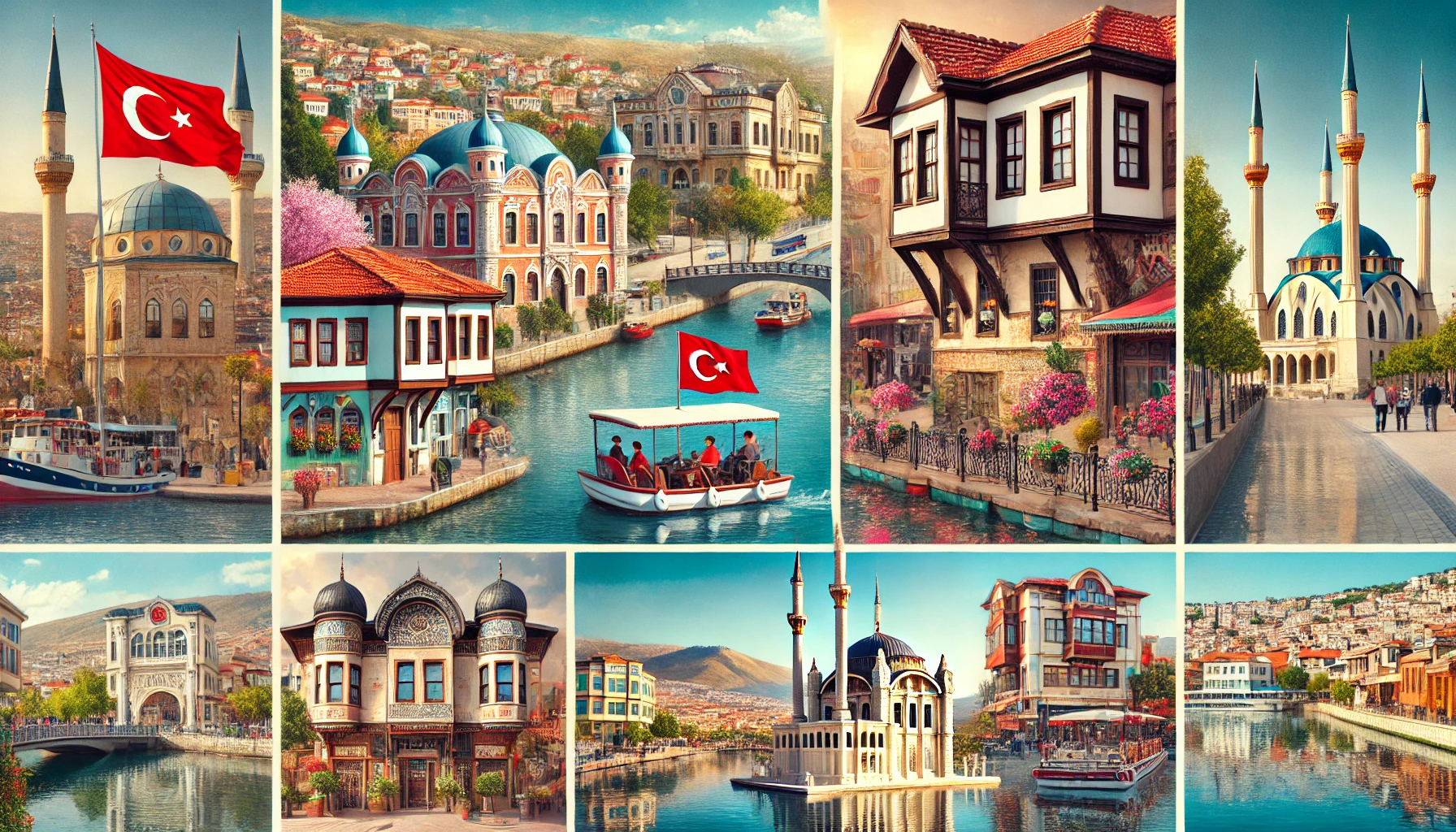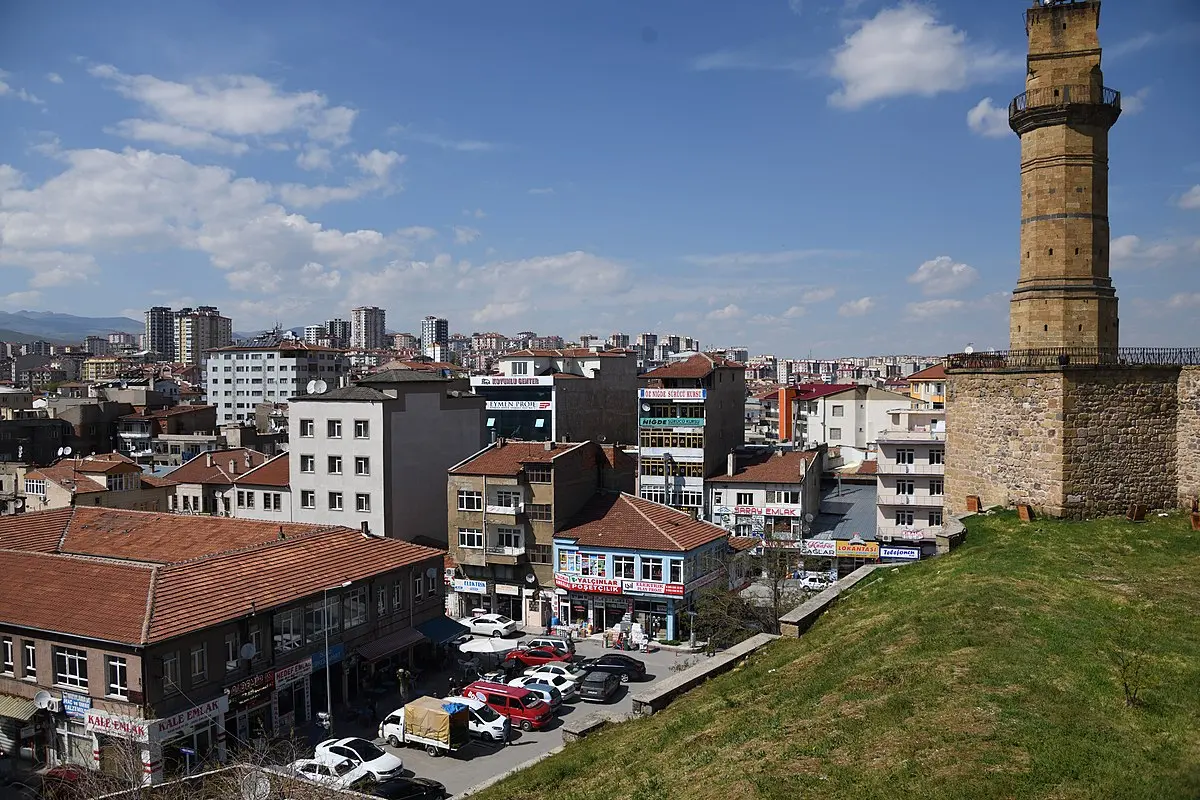


Visit Turkey
Explore Turkey, Embrace Adventure
No adress data
Facts About Turkey
Turkey, a country that spans two continents and boasts a rich tapestry of history, culture, and natural beauty, is a captivating destination for travelers. Whether you’re planning your first trip or are a seasoned visitor, there’s always something new to learn about this fascinating nation. In this comprehensive guide, we’ll delve into various intriguing facts about Turkey, offering insights that will enhance your travel experience.
A Land Bridging Two Continents
Geographical Significance
Turkey is uniquely positioned, with part of its territory in southeastern Europe and the majority in western Asia. The Bosphorus Strait, which runs through Istanbul, separates the European and Asian parts of the country. This strategic location has made Turkey a cultural and historical crossroads for millennia.
Rich Historical Heritage
Ancient Civilizations
Turkey is home to some of the world’s oldest known human settlements. The ancient city of Troy, made famous by Homer’s Iliad, and the Neolithic site of Göbekli Tepe, which dates back to 9600 BC, are just two examples of its ancient heritage.
Ottoman Empire
The Ottoman Empire, one of the longest-lasting empires in history, originated in Turkey. The Ottomans ruled vast territories across Europe, Asia, and Africa from 1299 until the establishment of the Republic of Turkey in 1923.
Cultural Diversity
Ethnic and Religious Composition
Turkey’s population is a mosaic of ethnic groups, including Turks, Kurds, Armenians, Greeks, and others. While the majority of the population is Muslim, Turkey is also home to various religious communities, including Christians and Jews, contributing to its rich cultural tapestry.
Language
Turkish is the official language, but you’ll also hear Kurdish, Arabic, and other languages, especially in regions with diverse ethnic communities. English is widely spoken in tourist areas, making travel easier for international visitors.
Stunning Landscapes
Diverse Geographies
From the pristine beaches of the Aegean and Mediterranean coasts to the rugged mountains of Eastern Anatolia, Turkey’s landscapes are incredibly diverse. The fairy chimneys of Cappadocia and the travertine terraces of Pamukkale are among its unique natural wonders.
National Parks
Turkey boasts numerous national parks that protect its natural heritage and offer outdoor recreation. Yedigöller National Park, known for its seven lakes, and Mount Nemrut National Park, with its colossal statues, are must-visit destinations for nature enthusiasts.
Delicious Cuisine
Traditional Dishes
Turkish cuisine is renowned for its rich flavors and variety. Signature dishes include kebabs, mezes (small appetizers), and baklava (a sweet pastry). Turkish breakfast, with its array of cheeses, olives, eggs, and fresh bread, is a delightful way to start the day.
Street Food
Street food is an integral part of Turkish culture. Don’t miss out on simit (sesame-coated bread rings), döner kebab, and gözleme (a savory flatbread with various fillings). These affordable and delicious options offer a taste of everyday life in Turkey.
Architectural Marvels
Historical Monuments
Turkey’s architectural heritage spans several millennia. The Hagia Sophia in Istanbul, originally a cathedral, later a mosque, and now a museum, showcases Byzantine architecture at its finest. The ancient city of Ephesus, with its well-preserved ruins, provides a glimpse into Greco-Roman civilization.
Modern Architecture
Contemporary Turkish architecture is equally impressive. The Istanbul Sapphire, one of the tallest buildings in Turkey, and the futuristic Zorlu Center are examples of modern design blending with historical context.
Festivals and Celebrations
Cultural Festivals
Turkey hosts numerous cultural festivals throughout the year. The International Istanbul Film Festival, the Aspendos International Opera and Ballet Festival, and the Whirling Dervishes Festival in Konya are just a few events that celebrate the country’s artistic and cultural heritage.
National Holidays
Turkey’s national holidays, such as Republic Day on October 29 and National Sovereignty and Children’s Day on April 23, are marked by vibrant celebrations, including parades, concerts, and public gatherings.
Vibrant Cities
Istanbul
Istanbul, Turkey’s largest city, is a vibrant metropolis that straddles Europe and Asia. Its rich history, bustling bazaars, and stunning landmarks like the Blue Mosque and Topkapi Palace make it a top destination for travelers.
Ankara
Ankara, the capital city, is the political and administrative heart of Turkey. Visit Anıtkabir, the mausoleum of Mustafa Kemal Atatürk, the founder of modern Turkey, and explore the Museum of Anatolian Civilizations for a deep dive into the region’s history.
Unique Experiences
Hot Air Ballooning in Cappadocia
Cappadocia’s unique landscape, characterized by fairy chimneys and cave dwellings, is best appreciated from a hot air balloon. The panoramic views at sunrise create a magical experience that’s hard to match.
Turkish Baths
A visit to a Turkish bath, or hammam, is a quintessential part of the Turkish experience. These traditional baths offer a relaxing and rejuvenating ritual that has been practiced for centuries.
Economic Landscape
Growing Economy
Turkey has one of the world’s largest economies, characterized by a diverse industrial base. Key sectors include automotive, textiles, electronics, and tourism. The country’s strategic location makes it a vital trade hub between Europe and Asia.
Tourism Industry
Tourism plays a crucial role in Turkey’s economy. With its rich history, diverse landscapes, and vibrant culture, Turkey attracts millions of tourists each year. Popular destinations include Istanbul, Antalya, and Cappadocia.
Educational Opportunities
Universities
Turkey is home to numerous prestigious universities, such as Boğaziçi University, Middle East Technical University (METU), and Koç University. These institutions attract students from around the world, offering high-quality education and research opportunities.
Study Abroad Programs
Turkey’s unique blend of East and West makes it an attractive destination for study abroad programs. Students can immerse themselves in the country’s rich culture while gaining a global perspective on their education.
Practical Travel Tips
Best Time to Visit
The best time to visit Turkey depends on the regions you plan to explore. Spring (April to June) and autumn (September to November) offer mild temperatures and fewer crowds, making them ideal for sightseeing and outdoor activities.
Visa and Entry Requirements
Most travelers need a visa to enter Turkey. You can apply for an e-Visa online before your trip. Check the latest entry requirements and health guidelines to ensure a smooth travel experience.
Safety and Health
Staying Safe
Turkey is generally a safe destination for travelers, but it’s always wise to stay informed about current events and follow local advice. Be cautious with your belongings in crowded areas and use reputable transportation services.
Health Precautions
Ensure you have travel insurance that covers health care. Drink bottled water and follow standard health precautions to avoid common travel ailments. In case of emergencies, Turkey has a well-developed healthcare system, particularly in urban areas.
Sustainable Travel
Eco-Friendly Practices
Turkey is increasingly focusing on sustainable tourism. Many hotels and tour operators are adopting eco-friendly practices, such as using renewable energy, reducing waste, and supporting local communities.
National Parks and Conservation
Visiting Turkey’s national parks and supporting conservation efforts helps protect the country’s natural heritage. Engage in responsible tourism practices, such as respecting wildlife and following park guidelines.
Fascinating Trivia
Tulip Origins
Many people associate tulips with the Netherlands, but they were first cultivated in Turkey. The tulip holds significant cultural importance and was a symbol of wealth and prestige during the Ottoman Empire.
Santa Claus
The legendary figure of Santa Claus, or St. Nicholas, originates from Turkey. St. Nicholas was a 4th-century bishop from the town of Myra, in modern-day Demre.
Conclusion
Turkey is a land of contrasts and surprises, offering a rich blend of history, culture, natural beauty, and modernity. Whether you’re exploring ancient ruins, savoring delicious cuisine, or enjoying the vibrant nightlife, Turkey provides endless opportunities for discovery and adventure.
From its strategic geographical location bridging two continents to its vibrant cultural heritage and diverse landscapes, Turkey is a destination that captivates the hearts of travelers. By understanding the various facets of this remarkable country, you can better appreciate its unique charm and make the most of your visit.
So pack your bags, prepare your itinerary, and get ready to embark on an unforgettable journey through Turkey. Whether you’re a history buff, a foodie, an adventurer, or simply a curious traveler, Turkey has something special to offer you. Enjoy the richness of its past, the vibrancy of its present, and the promise of its future as you explore all that this incredible country has to offer.
Common Questions
ATMs are widely available in cities, towns, and tourist areas, including airports, hotels, shopping centers, and banks.
Travel Tips help maximize your time and money spent in Europe and beyond. Topics include packing, planning, safety, tourist scams, transportation, money, sleeping, and much more. Here are some practical travel tips to help you make the most of your trip to Turkey.
Essential Travel Tips
Always Carry Your ID and Passport
Tourists should carry their ID and passport with them at all times for their own safety. This ensures you can identify yourself if needed and helps in case of emergencies.
Keep Some Turkish Lira
Even if a small amount of cash, it is advisable to keep some Turkish Lira with you. While credit cards are widely accepted, having cash on hand is useful for small purchases or in areas where cards are not accepted.
Use Travel Guides and Maps
Printed or digital travel guides and maps informing about the location you are visiting will help you get around and save valuable time so that you can focus on things worth seeing and doing.
Obtain a Museum Pass
Visitors who are planning to join culture tours in Istanbul, or Turkey in general, will be granted faster and cheaper admission to museums if they obtain a Museum Pass.
Use Online Check-In for Flights
Travelers who anticipate possible traffic congestion can use the online check-in system before arriving at the airport to avoid running the risk of missing their flight.
Take Advantage of Tax-Free Shopping
Tourists may benefit from tax-free shopping in Turkey by applying at the tax refund offices at the airports with their purchase receipts.
Purchase Prepaid SIM Cards
Tourists in Turkey may prefer to purchase prepaid SIM cards from the stores of local GSM operators to make cheap local and international calls and avoid any connection problems.
Wear Comfortable Clothes and Shoes
Wearing comfortable clothes and sports shoes will make you feel more comfortable if you are planning to participate in cultural tours during your stay in Turkey.
Use Public Transportation
Obtaining a public transportation card and making use of public transportation facilities is more practical and cheaper if you intend to spend your holiday in one of Turkey’s metropolitan areas.
Keep a Turkish Dictionary
It is advisable to keep a Turkish dictionary with you at all times. Finding people who speak foreign languages may not be possible at all times.
Rely on Local Hospitality
Turkish people are well known for their hospitality and friendliness. If you need help, you may ask the people around you; they will not turn you down.
Yes, the majority of ATMs offer English and other language options, making it easy for foreigners to navigate the transaction process.
Traveling to Turkey and need access to cash? You’ll find that withdrawing money from ATMs is a convenient and straightforward process. Here’s what you need to know:
Using ATMs in Turkey
Currencies Available:
- Visitors can withdraw money in Turkish Lira (TRY) as well as in Euros (EUR) and U.S. Dollars (USD) from many ATMs across Turkey. However, Turkish Lira is the most commonly dispensed currency.
Language Options:
- The majority of ATMs offer English and other language options, making it easy for foreigners to navigate the transaction process.
Steps to Withdraw Money
- Insert Your Card:
- Insert your debit or credit card into the ATM. Most ATMs in Turkey accept international cards such as Visa, MasterCard, and Cirrus.
- Select Language:
- Choose your preferred language for the transaction. English is widely available.
- Enter PIN:
- Enter your personal identification number (PIN) as prompted.
- Choose Transaction Type:
- Select the type of transaction you wish to perform. For withdrawing cash, choose the ‘Withdrawal’ option.
- Select Currency and Amount:
- Choose the currency (TRY, EUR, or USD) and enter the amount you wish to withdraw.
- Complete Transaction:
- Confirm the transaction and collect your cash, receipt, and card from the machine.
Tips for Using ATMs
Notify Your Bank:
- Before traveling, inform your bank about your trip to Turkey to avoid any issues with your card being blocked for suspicious activity.
ATM Locations:
- ATMs are widely available in cities, towns, and tourist areas, including airports, hotels, shopping centers, and banks.
Fees and Exchange Rates:
- Be aware of potential fees for international transactions, which may include a withdrawal fee from your home bank and a fee from the Turkish ATM operator. Additionally, exchange rates may vary, so check with your bank for the most favorable rates.
Daily Withdrawal Limits:
- Note that there may be daily withdrawal limits imposed by both your home bank and the ATM operator. It’s a good idea to check these limits in advance.
Security Tips:
- Use ATMs located in well-lit, secure areas, preferably inside bank branches or busy public places.
- Shield your PIN when entering it.
- Be cautious of skimming devices and report any suspicious activity to the bank.
The minimum wage in Turkey for 2024 has been a significant topic of discussion as the country continues to navigate economic challenges. Understanding the changes in the minimum wage is crucial for both employers and employees. In 2024, the net minimum wage in Turkey is set at 17,002.12 TL, with the gross wage being 20,002.50 TL. This increase reflects the ongoing adjustments to support the workforce amidst rising living costs. In this article, we will delve into the details of the 2024 minimum wage in Turkey, its impact on the economy, and how it compares to previous years.
Minimum Wage in Turkey for 2024
Significant Increase in 2024 Minimum Wage
The minimum wage in Turkey for 2024 has seen a substantial increase compared to previous years. The net wage is set at 17,002.12 TL, while the gross wage stands at 20,002.50 TL. This marks a significant rise from the second half of 2023, where the net wage was 11,402.32 TL and the gross wage was 13,414.50 TL. The increase aims to help workers cope with the rising costs of living in the country.
Comparison to Previous Years
To understand the significance of the 2024 minimum wage, it is essential to compare it with the figures from the past few years. In the first half of 2023, the net minimum wage was 8,506.80 TL, with a gross wage of 10,008 TL. Looking further back, the second half of 2022 saw a net wage of 5,500.35 TL and a gross wage of 6,471 TL. The consistent increases over the years highlight the government’s efforts to adjust wages in line with inflation and economic demands.
Average Salary in Turkey for 2024
Overview of Average Salaries
In 2024, the average salary in Turkey has also seen adjustments in response to economic conditions. As of August 2024, the average salary for a worker in the country is approximately 23,000 TL. This figure can vary significantly depending on factors such as industry, experience, and job role.
Worker Salaries in 2024
Focusing on worker salaries, the average monthly wage for a worker in 2024 is around 25,784 TL. This represents a substantial increase from the previous year, where the average worker salary in 2023 was 16,428 TL. The rise in wages reflects the broader economic trends and the need to support workers in the face of increasing expenses.
Impact of Minimum Wage Increase on the Economy
Economic Implications
The increase in the minimum wage for 2024 is expected to have several economic implications. On the one hand, higher wages can boost consumer spending, which is vital for economic growth. On the other hand, businesses may face increased operational costs, leading to potential price adjustments or hiring freezes. The balance between supporting workers and maintaining business sustainability will be crucial in the coming year.
Government Policies and Support
The Turkish government has been proactive in adjusting the minimum wage to align with inflation and economic needs. This ongoing effort to increase wages aims to improve the standard of living for workers while also stimulating the economy. However, it also requires careful management of fiscal policies to avoid adverse effects on businesses and employment rates.
Conclusion
The minimum wage in Turkey for 2024 has been significantly increased to 17,002.12 TL net and 20,002.50 TL gross. This rise reflects the ongoing economic adjustments and the government’s commitment to supporting the workforce. With the average salary also seeing an increase, the overall impact on the economy remains a critical area to monitor. As Turkey continues to navigate its economic challenges, these wage adjustments play a vital role in shaping the country’s financial landscape.
Notify your bank about your trip to Turkey to avoid any issues with your card being blocked for suspicious activity.
Discover Turkey now!
Eskişehir
Eskişehir, a vibrant and modern city in northwestern Turkey, offers […]
Adalar District, culture, day trips from Eskişehir, Eskişehir, Eskişehir architecture, Eskişehir art galleries, Eskişehir attractions, Eskişehir Aviation Museum, Eskişehir cuisine, Eskişehir cultural centers, Eskişehir Eti Archaeology Museum, Eskişehir festivals, Eskişehir Meerschaum Museum, Eskişehir Metropolitan Municipality Kentpark, Eskişehir nightlife, Eskişehir Opera House, Eskişehir parks, Eskişehir sports, Eskişehir thermal springs, Eskişehir transportation, Eskişehir universities, Eskişehir winter charm, Eskişehir youthful vibe, hidden gem, historical sites, modern city, museums, Odunpazarı, Porsuk River, Sazova Park, shopping in Eskişehir, things to do in Eskişehir, tourism, travel, Turkey
Niğde
Niğde, a quaint yet historically rich city nestled in Turkey’s […]
Alaaddin Mosque, ancient Tyana, Central Anatolia attractions, Eski Gümüşler Monastery, historical Niğde, historical sites in Niğde, Niğde, Niğde Archaeological Museum, Niğde Castle, Niğde climate, Niğde Province, Niğde sightseeing, Niğde tourism, Niğde travel, Niğde Turkey, scenic spots in Niğde, Sungur Bey Mosque, travel in Central Anatolia, Turkish cities to visit
Ankara
Ankara, Turkey’s vibrant capital, is a city steeped in history […]
Anıtkabir, Ankara, Ankara Castle, Ankara landmarks, Atatürk Forest Farm and Zoo, culture, Ethnography Museum of Ankara, Gençlik Park, historical sites, Kocatepe Mosque, Museum of Anatolian Civilizations, museums, parks, Presidential Complex, Roman Bath, things to do in Ankara, top attractions, tourism, travel, Tunalı Hilmi Street, Turkey’s capital, visit Ankara
Rize
Rize, a picturesque city located on the northeastern coast of […]
Ayder Plateau, Ayder Snow Festival, Ayder spa resorts, best time to visit Rize, Black Sea, culture, Fırtına River rafting, hidden gem, historical sites, Kaçkar Mountains, paragliding Black Sea, Rize, Rize accommodation, Rize attractions, Rize baskets, Rize Castle, Rize cuisine, Rize souvenirs, Rize Tea Festival, Rize thermal springs, tea plantations, things to do in Rize, tourism, Trabzon airport, travel, Turkey, Turkish Black Sea coast, Zilkale
Çankırı
Çankırı, a city rich in history and culture, is located […]
accommodation in Çankırı, Byzantine Empire, Çankırı, Çankırı agriculture, Çankırı Cattle Fair, Çankırı climate, Çankırı history, Çankırı honey, Çankırı Honey Festival, Çankırı industry, Çankırı Karatekin University, Çankırı Museum, Etli Ekmek, Gangra, Germanicopolis, Hypatios of Gangra, Ilgaz Mountain, Ilgaz Mountain National Park, Keşkek, Ottoman Turks, outdoor activities, Paphlagonia, Paphlagonian language, Roman fortress, Roman province, Seljuk Empire, Strabo, Synod of Gangra, traditional Turkish houses, transportation to Çankırı, Turkey travel, winter tourism




